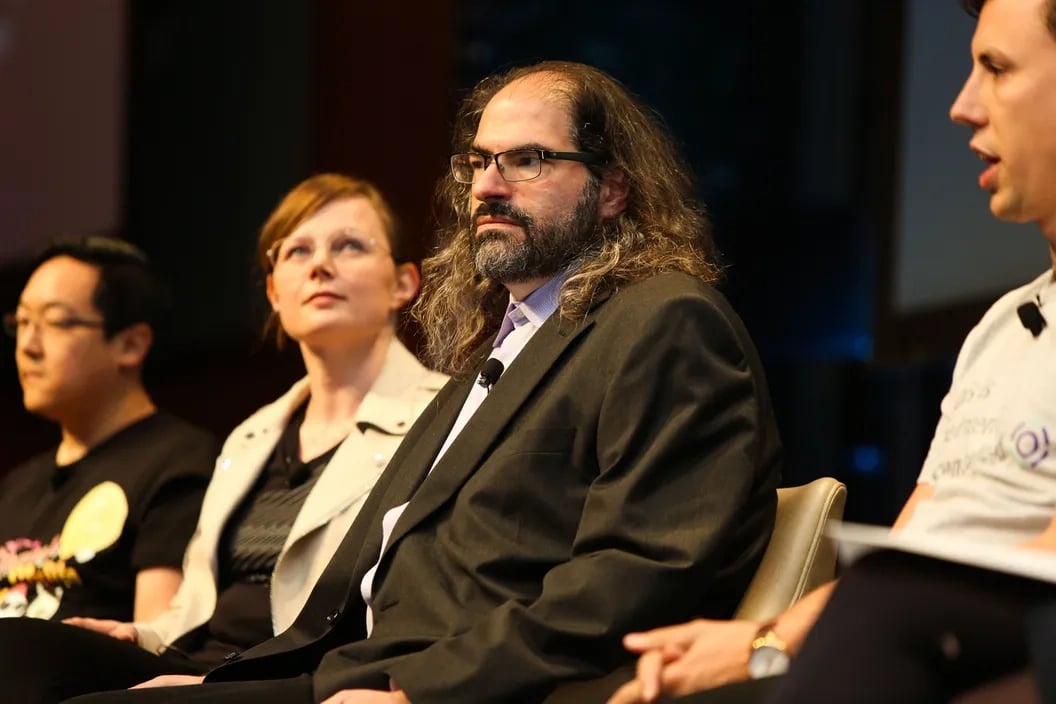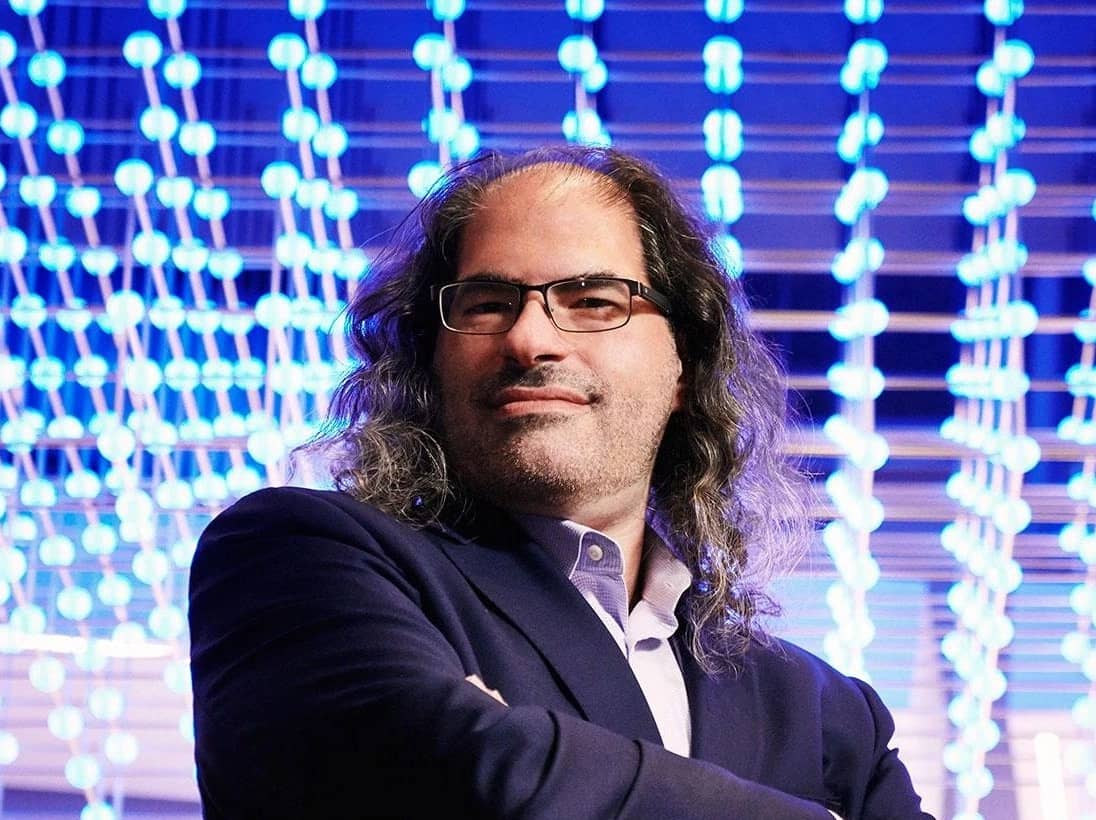Subscribe to wiki
Share wiki
Bookmark
David Schwartz
The Agent Tokenization Platform (ATP):Build autonomous agents with the Agent Development Kit (ADK)
0%
David Schwartz
David Schwartz (also known as JoelKatz) is Chief Technology Officer (CTO) and Chief Cryptographer at Ripple as well as a board member and advisor at PolySign. David is one of the original architects of the XRP Ledger. On September 30, 2025, Schwartz announced he would be stepping down as CTO by the end of the year. [12] Before Ripple, he was a director of software development at Webmaster Incorporated, a Santa Clara software developer. [1]
He also assists companies with strategic planning in emerging technologies such as distributed payment systems and secure computing with his expertise in cryptography, computer security, and software development, particularly for startups and quickly-growing small companies. Schwartz developed encrypted cloud storage and enterprise messaging systems for organizations like CNN and the National Security Agency (NSA). [2]
Education
David Schwartz studied Electrical Engineering at the University of Houston, Texas, U.S., and graduated in 1990. [1]
Career
Early years
In 1988 before he graduated from the university, Schwartz founded David Schwartz Enterprise. He invented a hierarchical system for distributing workloads over multiple computers, handled interactions with the USPTO to obtain the United States patent, and managed marketing and licensing efforts. [1]
In 1991, Schwartz served as a software developer at Re/Max. There he conceived and developed a system to analyze public property records and identify houses that were the most likely to be over-assessed and entitled to property tax reductions. [1][2]
In 1992, Schwartz was a partner in Cardiophonics. He is a co-founder of a medical device manufacturing company that developed, manufactured, and sold a noninvasive medical device to provide objective measurements of the presence and severity of heart murmurs and related conditions. [5]
In 1996, Schwartz worked for Worldwide Internet Solutions as a senior network manager. He supervised the design, implementation, and deployment of a regional network and a large document scan, index, search, and retrieval system. [5]
WebMaster Incorporated
In January 1998, Schwartz joined Webmaster Inc. where he worked for 13 years. He started as a director of software development. In 2001, he was promoted to Chief Technical Officer (CTO) overseeing research, development, and technical operations. [5]
Ripple
Schwartz joined Ripple in November 2011 as the Chief Cryptographer of the company. In July 2018, he was assigned as the Chief Technology Officer of Ripple.
In April 2020, YouTube suspended Schwartz's YouTube channel soon after the blockchain firm launched a lawsuit against it over the XRP scam in videos. This suspension came a week after Ripple initiated a lawsuit against YouTube on allegations the platform had failed to prevent fake XRP giveaway scams on the platform. [4]
In December 2020, the SEC filed a legal action against Ripple Labs Inc. and two executives, accusing them of conducting an unregistered digital asset securities offering. The complaint stated that Ripple raised over $1.3 billion since 2013 by selling XRP, a digital asset, to investors globally. Additionally, Ripple was alleged to have distributed billions of XRP in exchange for non-cash consideration, including labor and market-making services. [6]
In April 2021, David said on CoinDesk TV that "all the evidence" suggests Bitcoin and XRP were similar despite allegations that XRP was being sold illegally as a security. Ripple was defending itself against a U.S. Securities and Exchange Commission (SEC) action alleging the company and two of its executives violated U.S. securities laws in selling XRP to retail consumers. [3]
On October 19, 2023, The U.S. Securities and Exchange Commission (SEC) dismissed its aiding and abetting claims against Ripple Labs executives Chris Larsen and Brad Garlinghouse in its lawsuit alleging the blockchain company violated U.S. securities law, according to a court filing in New York on October 19, 2023. Ripple Labs Chief Legal Officer Stuart Alderoty wrote on X: [7]
"The SEC made a serious mistake going after Brad & Chris personally – and now, they’ve capitulated, dismissing all charges against our executives. This is not a settlement. This is a surrender by the SEC."[7]
Departure
On September 30, 2025, Schwartz announced he would be stepping down from his role as CTO by the end of the year, after more than 13 years with the company. [12] [13] He stated his intention to spend more time with his family and pursue personal hobbies. [14] Despite his departure from the executive role, Schwartz confirmed he would remain involved with Ripple by joining its board of directors and taking on the title of CTO Emeritus. [15] Ripple CEO Brad Garlinghouse praised Schwartz as a "true OG in crypto" and expressed gratitude for his contributions to the company and the XRP Ledger. [16]

XRP Holdings and Investment
As one of the original architects of the XRP Ledger, David Schwartz holds a substantial amount of XRP. Unlike some early contributors, he purchased his XRP tokens from the secondary market rather than receiving them as part of the initial distribution. He opted for Ripple shares and chose to receive his early salary in cash, stating he could buy XRP on exchanges. [8] [9]
In July 2025, Schwartz revealed his entry price for XRP was $0.006. This disclosure came in response to a social media user who suggested that early XRP community members acquired the token around $0.50. His entry price significantly undercuts this figure, indicating his very early involvement in the market. For context, XRP traded around the $0.50 level for years, from April 2022 to November 2025, before breaking out. [8] [9]
Schwartz previously stated his peak XRP balance was 26 million tokens. If he acquired this amount at his revealed entry price of $0.006, the total cost would have been $156,000. With XRP trading around $2.25 as of July 2025, his 26 million XRP would be worth approximately $58.5 million, representing returns exceeding $58 million. While he confirmed he has not sold large amounts of his XRP, his current exact holdings are not publicly known. [8]
Projections suggest XRP could potentially reach a price of $10 in the future. If Schwartz still held his peak balance of 26 million XRP and the price reached $10, his holdings would be valued at $260 million. [8]
Schwartz also mentioned in the past that his father purchased over a million XRP in 2014 at an even lower price of $0.005. [9] [10]
Bitcoin Mining and Shift to XRP and ETH
David Schwartz mined 250 Bitcoins during the cryptocurrency's early days, starting in 2011 when Bitcoin was trading around $30. He expressed some disappointment at not having discovered Bitcoin earlier, missing the opportunity to witness its price drop to as low as $2.50. [11]
Despite his early involvement in Bitcoin mining, Schwartz sold his Bitcoin holdings to invest in XRP and Ethereum. This decision was influenced by concerns over Bitcoin's energy usage and scalability. He has frequently criticized the Bitcoin network’s reliance on proof-of-work, describing it as inefficient for long-term growth. In contrast, Ripple’s consensus model and Ethereum’s shift to proof-of-stake align more closely with his views on sustainable blockchain development, as both platforms use less power and enhance the speed and effectiveness of transactions. This move reflected his strategic shift towards digital assets that aim to address key challenges seen in first-generation cryptocurrencies. [11]
Schwartz has been open about his crypto journey, including dealing with rumors about his identity. There have been speculations that he is Satoshi Nakamoto, the unknown creator of Bitcoin, but Schwartz has consistently denied these allegations. He clarified that he only heard about Bitcoin in 2011, well after its development stage was over, and that he was not involved in its creation. [11]
See something wrong?
The Agent Tokenization Platform (ATP):Build autonomous agents with the Agent Development Kit (ADK)
